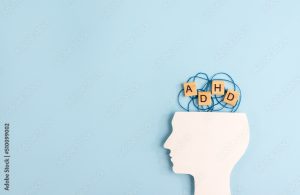Mental health therapy encompasses a wide range of techniques and approaches used to treat mental illness and promote mental well-being. These therapies can vary greatly in their methods and areas of focus. Understanding the different types of mental health therapies can be crucial for those seeking help for themselves or others. This article explores some of the most common and effective types of therapies used in mental health treatment.
1. Cognitive Behavioral Therapy (CBT)
Cognitive Behavioral Therapy is a widely used treatment that focuses on identifying and changing negative thought patterns and behaviors. It’s based on the idea that our thoughts, feelings, and behaviors are interconnected, and that changing negative thoughts can lead to changes in feelings and behaviors. CBT is commonly used to treat anxiety, depression, PTSD, and other mental health disorders.
2. Psychoanalytic Therapy
Originating from the theories of Sigmund Freud, psychoanalytic therapy explores how unconscious thoughts and childhood experiences shape current behavior and feelings. This long-term therapy involves exploring past experiences to understand present behaviors. It’s often used for complex and deep-rooted psychological issues.
3. Humanistic Therapy
Humanistic therapy focuses on helping individuals develop a stronger, healthier sense of self, as well as access and understand their feelings to gain a sense of meaning in life. It includes approaches like client-centered therapy, where the therapist provides a supportive environment without judgement, allowing the client to lead the discussion.
4. Dialectical Behavior Therapy (DBT)
DBT is a type of CBT that emphasizes the psychosocial aspects of treatment. It was originally developed to treat borderline personality disorder but has since been adapted for other conditions. DBT focuses on teaching skills in four key areas: mindfulness, distress tolerance, emotion regulation, and interpersonal effectiveness.
5. Family Therapy
Family therapy focuses on solving problems that affect the entire family. This approach believes individual problems should be understood in the context of family relationships. Techniques involve family members in therapy sessions to understand family dynamics and improve communication.
6. Group Therapy
Group therapy involves one or more therapists working with several people at the same time. This therapy is widely used for a variety of mental health disorders. The group setting allows for the sharing of experiences, emotional support, and the development of coping strategies.
7. Art Therapy
Art therapy uses creative processes like drawing, painting, or sculpting to help people express themselves and explore their emotions. It’s particularly useful for those who find it hard to express their thoughts and feelings verbally.
8. EMDR (Eye Movement Desensitization and Reprocessing)
EMDR is a relatively new therapy designed to alleviate the distress associated with traumatic memories. It involves the patient recalling a traumatic event while receiving one of several types of bilateral sensory input, such as side-to-side eye movements.
9. Interpersonal Therapy (IPT)
IPT is a structured, time-limited therapy that focuses on interpersonal issues and relationships. It’s particularly effective for depression, helping individuals understand and work through problematic personal relationships that may contribute to their depression.
Conclusion
There is a wide range of mental health therapies available, each with its unique approach and area of focus. The effectiveness of therapy depends on various factors, including the individual’s specific needs and the severity of the disorder. Consulting with mental health professionals can help determine the most appropriate type of therapy for an individual’s situation.




